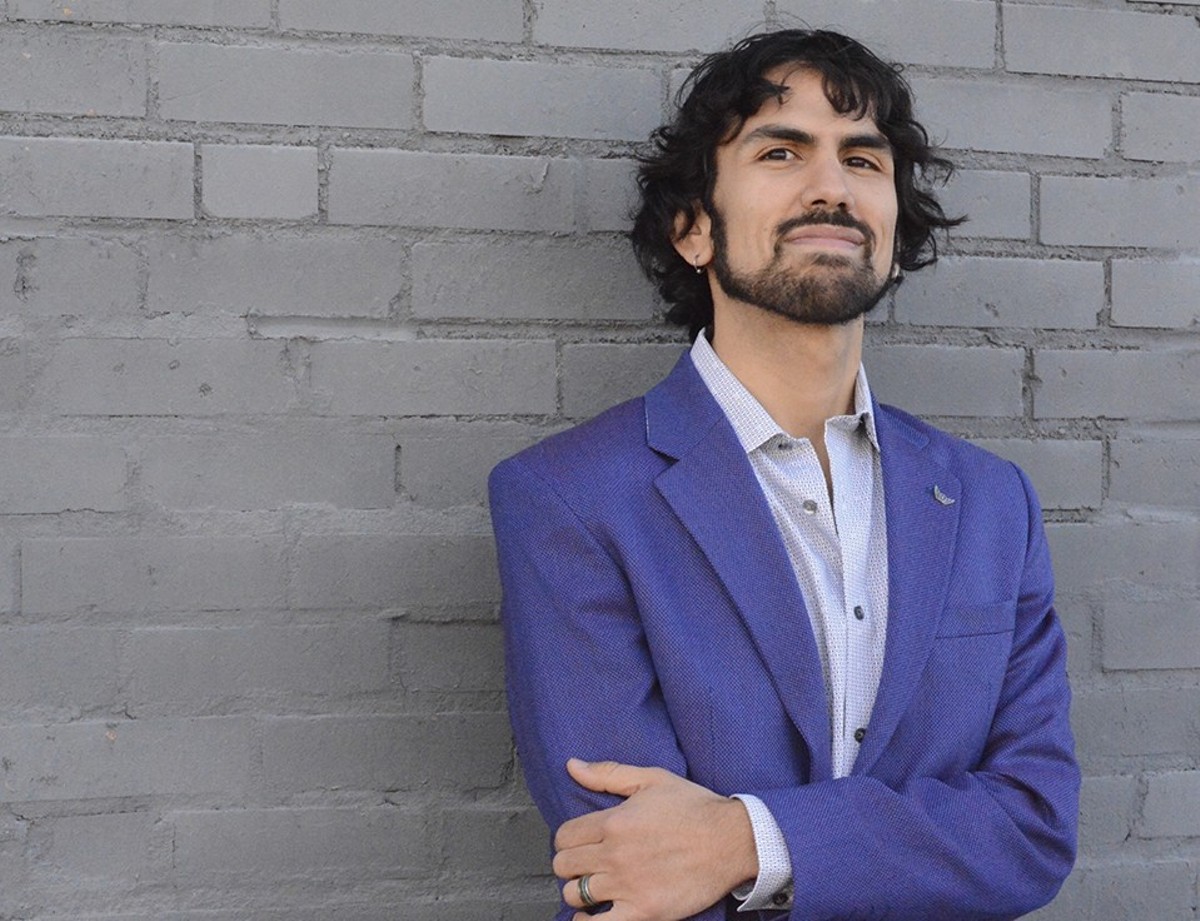For much of the past decade, keyboardist Ryan Marquez has played in a host of soul- and groove-oriented groups, including the pop-forward band Fresh Heir, the fusion-fried Toymaker and the organ-led funk quartet the People's Key. But to make his latest album, Moving Forward in Time, he had to go back to his roots. The album finds Marquez embracing one of his original musical loves — the jazz trio, with Marquez's piano taking the spotlight.
"I hadn't done a lot of jazz work in the last five or ten years or so, and I think it was a blooming of feeling inspired to take my own crack at the jazz trio," says Marquez. "I think I always saw myself as a jazz musician — as a kid, that's what I always wanted to be — but then I got to college and there were all these ideas of 'what is jazz' and all this heady philosophy. To me, there's always been two kinds of music: good music and bad music.
Along with bassist Ben Wheeler and drummer Steve Davis, Marquez has created a breezy and, at times, contemplative album. His commitment is to the song's melody (most clearly heard on the covers of Bill Withers' "Lovely Day" and Michael Jackson's "Human Nature"), but Davis and Wheeler scurry like stagehands in the background to keep subtle but perpetual tension.
"I guess it was the beginning of last year where I got really inspired to just write original music in a jazz-trio format, which is really what spawned this whole Moving Forward in Time project," Marquez says. "It was really inspired by all the crazy energy that was around with the election and the events that were happening in the aftermath of Ferguson and the riots that were going downtown."
But that "crazy energy" gets transmuted into something gentler in Marquez's hands. He's a charismatic and centered person — one of his many side-gigs involves playing music alongside guided meditation — and as he sips a mug of green tea, he explains his motivations behind the new album.
"Instrumental music is about conveying ideas through music, so my idea was to use the song titles as intentions," he says. "So I used words like 'serenity' and 'patience.' And 'Peace March,' I actually wrote that on the day of the women's march that happened downtown [on Inauguration Day in January 2017]. That's kind of the direction that I started in, and it started unfolding."
Marquez's time in the jazz program at Webster University led him to embrace the expressive, occasionally unwieldy Hammond B3 organ. When Hammond wizard Dr. Lonnie Smith came to the school for a clinic with Lou Donaldson, Marquez caught the spark.
"After the clinic was over, a few of us huddled around Dr. Lonnie and played twenty questions with him," says Marquez. "He was talking about how there's a lot of piano players, but there aren't a lot of true organ players left. He said, 'The world needs more organ players.' He looked me dead in the eye — I don't even know if he knew I was a keyboard player. I thought, 'You know what? I wanna play organ like Dr. Lonnie Smith.' I still have miles to work to get to that level."
His time at Webster led to several such moments, but none more transformative than studying with (and gigging alongside) adjunct professor and beloved tenor saxophonist Willie Akins.
"I got to play in his band for about two years," says Marquez. "I got educated and schooled in his band, even though he was an educator at Webster — that's how we met."
Marquez used his time with Akins to inspire the writing of "Apparition," which takes its bones from the Horace Silver tune "Pretty Eyes," a song that was something of a theme song for Akins. But it was a slightly supernatural visit from Akins, who passed in 2015, that really spurred Marquez forward with the project.
"I actually had a dream where he came to me," Marquez says. "We were playing in a club, and he was playing his butt off. I don't even remember what song we were playing, but he was playing it with everything he had. He just finished his solo and he turned to me to motion for my solo, and it was this moment — it was a look he gave me: 'Alright, Ryan, whatcha got? Your turn.'
"So I felt like it was a passing of the torch."






